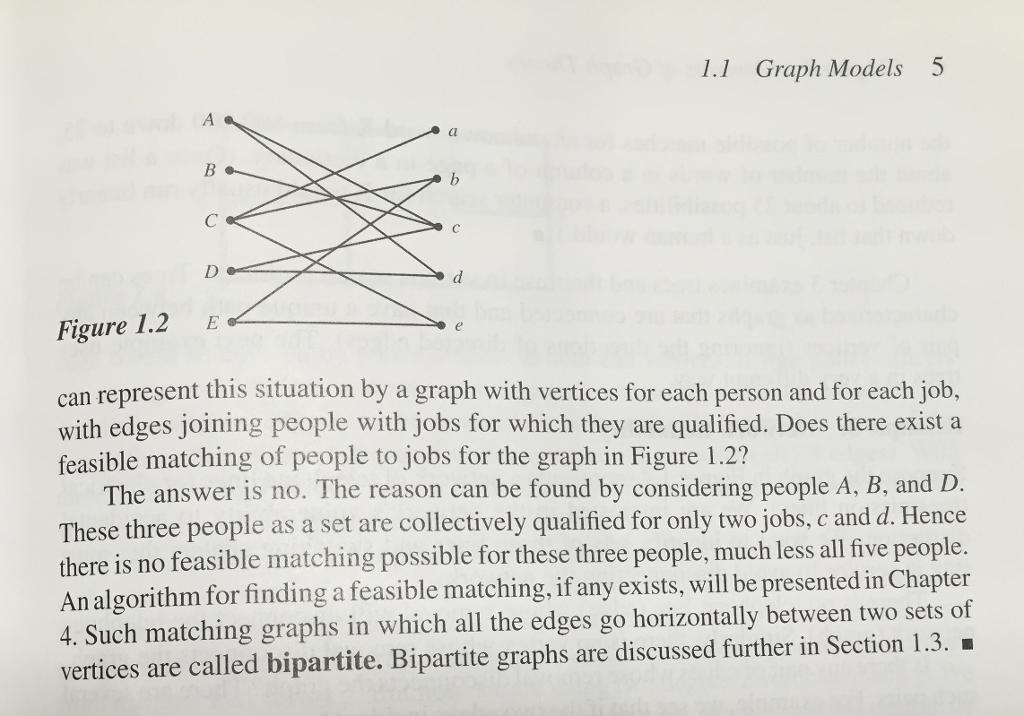Answered step by step
Verified Expert Solution
Question
1 Approved Answer
9. Recall from Example 1 in Section 1.1 that a graph is bipartite if the vertices can be divided into two sets; for convenience



9. Recall from Example 1 in Section 1.1 that a graph is bipartite if the vertices can be divided into two sets; for convenience call them blue vertices and red vertices, such that every edge connects a blue and a red vertex. (a) Show that if a connected bipartite graph has a Hamilton circuit, then the numbers of red and blue vertices must be equal. Further, show that if a bipartite graph has an odd number of vertices, then it has no Hamilton circuit. (b) Show that if a connected bipartite graph has a Hamilton path, then the num- bers of reds and blues can differ by at most one. Example 1: Matching Suppose that we have five people A, B, C, D, E and five jobs a, b, c, d, e, and that various people are qualified for various jobs. The problem is to find a feasible one- to-one matching of people to jobs, or to show that no such matching can exist. We A B De W E a b d 1.1 Graph Models 5 Figure 1.2 can represent this situation by a graph with vertices for each person and for each job, with edges joining people with jobs for which they are qualified. Does there exist a feasible matching of people to jobs for the graph in Figure 1.2? The answer is no. The reason can be found by considering people A, B, and D. These three people as a set are collectively qualified for only two jobs, c and d. Hence there is no feasible matching possible for these three people, much less all five people. An algorithm for finding a feasible matching, if any exists, will be presented in Chapter 4. Such matching graphs in which all the edges go horizontally between two sets of vertices are called bipartite. Bipartite graphs are discussed further in Section 1.3.
Step by Step Solution
★★★★★
3.42 Rating (146 Votes )
There are 3 Steps involved in it
Step: 1

Get Instant Access to Expert-Tailored Solutions
See step-by-step solutions with expert insights and AI powered tools for academic success
Step: 2

Step: 3

Document Format ( 2 attachments)
635e190a0173a_181438.pdf
180 KBs PDF File
635e190a0173a_181438.docx
120 KBs Word File
Ace Your Homework with AI
Get the answers you need in no time with our AI-driven, step-by-step assistance
Get Started


